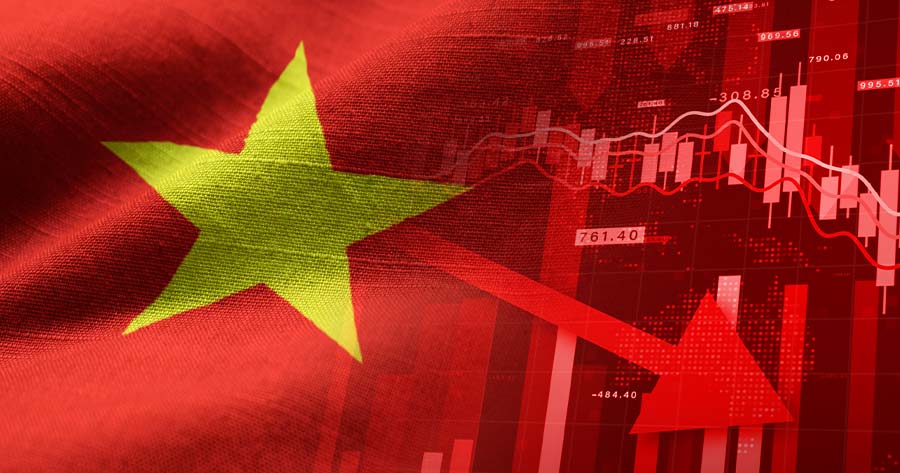In the first quarter of 2024, foreign investors in the Vietnamese stock market continued their trend of net selling, with active funds and exchange-traded funds (ETFs) contributing to the selling pressure. However, certain sectors like insurance, chemicals, and banking managed to attract foreign capital amidst the overall selling scenario.
BIDV Securities Co (BSC) released a market outlook report of April that shows foreign investors sold a net total of 11.55 trillion dong (approx. 454 million US dollars) across all exchanges in the first quarter of 2024, which accounted for 50.62% of the total net selling value in 2023.
The most significant net selling activity was on March 23, with foreign investors selling over 6.5 trillion dong. BSC noted that the consistent net selling trend for five consecutive quarters has been primarily driven by active funds and ETFs, leading to continued market pressure.
Despite the overall selling trend, certain sectors such as insurance, chemicals, and banking witnessed substantial foreign investment during the first quarter, with the banking sector notably breaking a five-quarter streak of net selling.
Notably, Do Hong Van, head of analysis at FiinGroup, highlighted that the majority of foreign investor selling occurred in the last two weeks of March, coinciding with the net asset value closure of first quarter funds, primarily driven by active funds rather than ETFs. This trend of foreign fund outflows is not unique to Vietnam, with funds preferring developed markets and weakening interest in Asian markets like Thailand and Vietnam.
Factors such as exchange rate fluctuations and a limited stock variety, primarily in real estate and banking instead of trending sectors like technology and green energy, are cited as reasons for the lack of allure for foreign investors in the Vietnamese stock market. Nonetheless, a positive development is the emerging foreign demand, particularly led by the Fubon Fund from Taiwan, indicating the possibility of more net buying sessions if the trend continues.
To retain foreign capital, stabilizing the exchange rate and addressing obstacles to market upgrades will be crucial moving forward.




